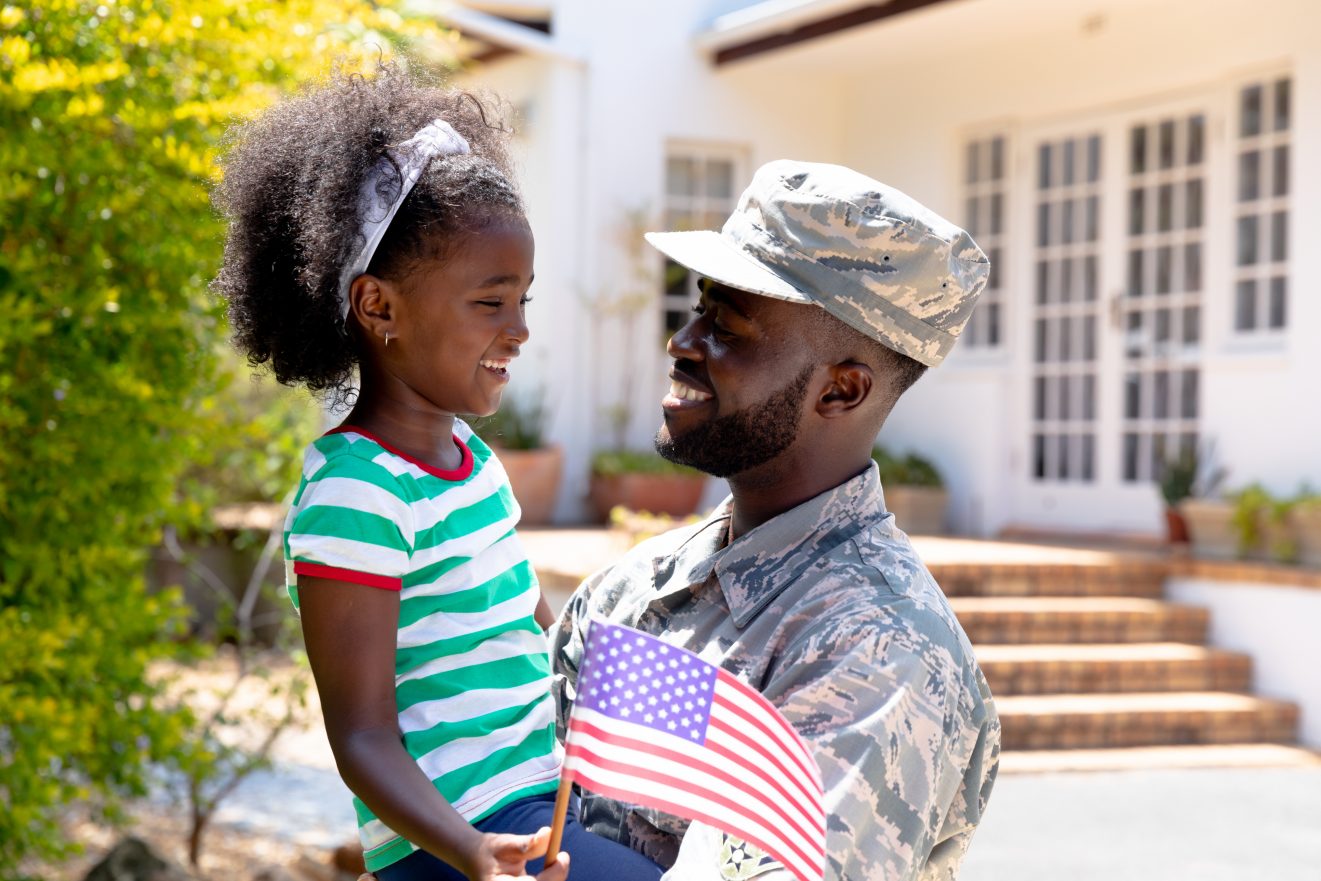
By Katherine Swarts
3 minute read
To round off Mental Health Awareness Month and acknowledge Memorial Day, BridgingApps looks at veteran mental health.
Bring up mental health and military veterans, and most people automatically think, “Oh, PTSD.” While post-traumatic stress disorder is far more common among veterans than among average civilians, the majority of veterans never experience it. Nor is it the only mental-health concern for former service members.
About PTSD
When someone witnesses or experiences violence, there typically is an aftermath period of numbness, denial, and/or uncontrollable strong emotions. If symptoms persist beyond thirty days, it may be a case of post-traumatic stress syndrome.
PTSD means that the brain refuses to let go of horrible experiences, perhaps in attempts to guard against further trauma. Flashbacks (slipping into a “trance” and mentally reliving events) are one well-known symptom. People with PTSD also frequently experience:
- Vivid nightmares
- Inability to stop thinking about a traumatic experience
- Avoidance of anything that might trigger painful memories: refusal to talk about an experience, or to go near places/people that resemble trauma-associated images
- Memory blackouts
- Chronic jumpiness
- Insomnia
- Persistent feelings of depression, hopelessness, anger, or guilt
- Self-destructive behavior
The National Alliance on Mental Illness estimates that 11–20 percent of U.S. veterans experience PTSD symptoms each year; and thousands of veterans per year die by suicide. (Note: If you feel suicidal or know a veteran who talks about “wanting to die,” contact the Veterans Crisis Line, 800-273-8255, for immediate help. Don’t procrastinate: many tragedies could be prevented if fewer people “waited to see what happened.”)
Other Mental Health Issues
Next to PTSD, the best-known war-associated mental problem is traumatic brain injury. TBI is a mental illness with a physical cause: it happens when the head is violently jarred by a fall or a blow. Or—a special risk for veterans—gunshot or explosion. Traumatic brain injury symptoms may include frequent dizziness, blurry vision, difficulty concentrating, or loss of emotional and impulse control.
The CDC recorded over 430,000 TBI diagnoses in American service members from 2000 to 2020. Often, though, the condition isn’t even diagnosed: many traumatic head injuries don’t seem “that serious” when they occur, and it may be years before they’re connected to subsequent symptoms.
Combat veterans who escape PTSD and TBI have still dealt with regular high stress, pressure to perform beyond their abilities, and the potential of life-altering physical injury or the loss of a friend. They also spend long periods apart from family. Any of this can increase risk of developing various mental–emotional issues—or aggravating pre-existing ones.
Finally, veterans have additional stresses to face after leaving the service:
- Getting re-acquainted with family after months or years of distance
- Re-adjusting to the less regulated atmosphere of civilian life
- Dealing with stereotypes (many veterans who do not have PTSD complain of being annoyed by others’ assumptions that the problem is universal)
- And, perhaps most significantly, the need for major shifts in one’s perceived identity and purpose
How Veterans Can Cope With Mental Health Struggles
BridgingApps for Veterans recommends digital tools for specific difficulties, including access to virtual care when in-person therapy is impractical. Remember, though, that no artificial intelligence can fully replace a human peer-support group or doctor/therapist. (Note to veterans in the Houston area: our larger organization, Easter Seals of Greater Houston, invites you to take advantage of the support resources at https://eastersealshouston.org/Programs/veteran-s-services.html.)
Remember also that ultimate responsibility for taking action is still yours. Ask for help when you need it. Practice good physical-health habits. Set aside regular time to relax and enjoy yourself. And keep your sense of purpose alive. If your whole identity has depended on the military, it’s time to take stock of your innate skills and interests—things that don’t change with circumstances—and how they can be put to use in your new situation.
As a veteran, you know from experience how to meet tough challenges. This doesn’t mean you’re indestructible or should try to handle everything by yourself; but it does mean you have resilience to keep going, even when your own brain seems to be fighting you. Lean on your support network and believe you can win this battle!

